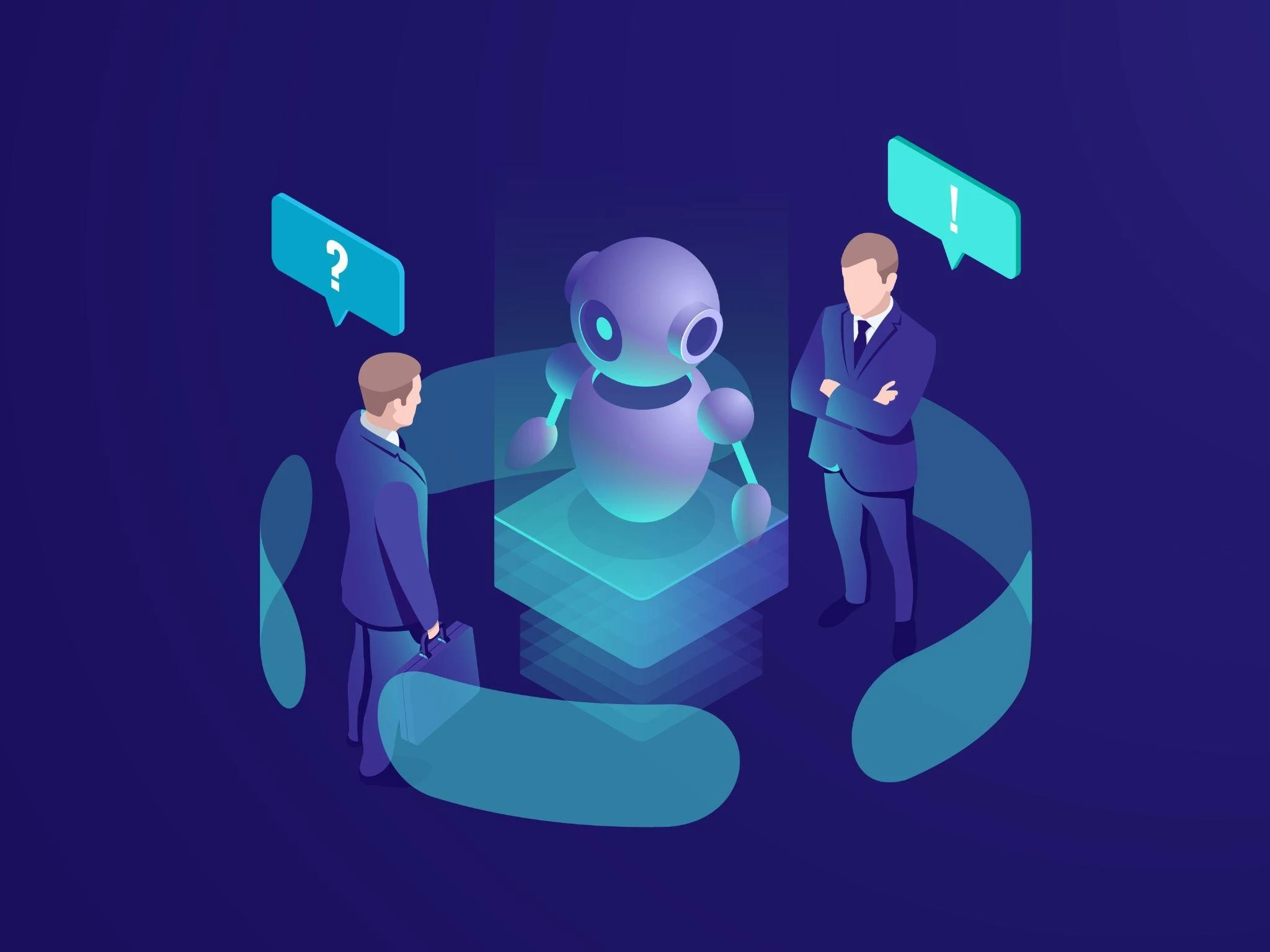The world of mobile application development is evolving at an unprecedented pace, driven by a growing demand for intelligent mobile apps. Users now expect more from their apps, seeking personalized, efficient, and intuitive experiences. Are you struggling with app development to meet these expectations? How can integrating AI transform your approach to building apps and enhance user engagement?
AI-powered app development stands at the forefront of this transformation, offering innovative solutions that harness machine learning, natural language processing, and data analysis to deliver smarter apps. As businesses look to optimize operations and improve user satisfaction, the role of AI in app development becomes indispensable. In this blog, we will explore the benefits, technologies, implementation steps, challenges, real-world applications, and best practices for developing AI-powered apps, equipping you with the knowledge to navigate this exciting landscape.
Benefits of AI-Powered App Development
Enhanced User Experience
One of the standout benefits of AI-powered app development is the significant enhancement of user experience through personalization. Intelligent mobile apps utilize AI algorithms to learn from user interactions, preferences, and behavior patterns, delivering tailor-made experiences that resonate with individual users.
For instance, e-commerce applications like Amazon leverage AI to recommend products based on previous purchases and browsing history. Such personalization not only increases user engagement but also drives conversion rates and enhances customer satisfaction. According to a McKinsey study, personalization can lead to a 10-30% increase in revenue for businesses that effectively implement targeted strategies.
Another example can be seen in fitness apps that use AI to create personalized workout plans and dietary suggestions based on user fitness levels and goals. By adapting content, notifications, and functionalities to the individual user profile, these apps foster a deeper connection that ultimately enhances user loyalty.
Efficiency in Development Process
AI tools can greatly improve the efficiency of the app development process, benefiting developers and businesses alike. By automating various tasks such as coding, testing, and debugging, AI can significantly reduce the time to market for applications. Gartner reports that organizations utilizing AI-based solutions can cut app development time by up to 30%.
Tools such as ChatGPT can assist developers in generating code snippets, streamlining the programming process. Additionally, platforms like Test.ai provide automated testing solutions powered by AI, ensuring that apps perform optimally across different devices without the extensive manual labor traditionally required.
These efficiencies not only save time but also reduce costs related to labor and resources, enabling companies to focus on creating and refining the user experience rather than getting bogged down by mundane tasks.
Key Technologies in AI-Powered App Development
Machine Learning Algorithms
Machine learning (ML) is a pivotal technology in the realm of AI-powered app development, enabling apps to learn from data and improve over time. By analyzing user behavior and other relevant data points, ML algorithms help create personalized experiences that adapt to user needs.
Various types of machine learning algorithms can be utilized in app development, including supervised learning for classification tasks, unsupervised learning for clustering information, and reinforcement learning for decision-making processes. For instance, recommendation engines that suggest relevant content are often powered by collaborative filtering algorithms, which utilize data from user interactions.
A notable case study in this field is Spotify, which employs advanced machine learning techniques to curate personalized playlists for users. The system analyzes listening habits and user feedback to enhance its recommendations continually, creating a user experience that feels uniquely yours.
Natural Language Processing (NLP)
Natural Language Processing (NLP) is another crucial technology shaping the future of intelligent mobile apps. NLP allows applications to understand and process human language, enabling users to interact with apps seamlessly through voice commands or text input. This technology is particularly important in chatbots, virtual assistants, and language translation apps.
Consider applications like Siri and Google Assistant, which use NLP to interpret spoken commands and provide appropriate responses. These intelligent systems leverage vast datasets to improve their understanding over time, resulting in more accurate and helpful interactions. By incorporating NLP into your app, you can enhance its functionality, making it easier for users to access features without navigating complex menus.
For instance, customer service bots in retail apps can respond to user inquiries in natural language, improving user experience while reducing the workload on support teams. As NLP continues to evolve, we can expect even more innovative applications to emerge, further changing how users interact with technology.
Steps to Implement AI in App Development
Define Objectives and Requirements
To successfully integrate AI into your app development process, the first step is to clearly define your objectives and requirements. Establishing well-defined goals helps ensure that AI implementation aligns with your app’s purpose and enhances its core functionalities.
Conduct thorough audience research to understand user needs and pain points. This insight is vital in determining what AI features to implement. For example, if your app targets fitness enthusiasts, you might prioritize integrating machine learning for personalized recommendations and progress tracking. Alternatively, if your target audience includes busy professionals, you may want to focus on automating tasks through NLP to facilitate easier voice interactions.
Choose the Right AI Tools
The next critical step involves selecting the appropriate AI tools for your app development project. There are various platforms and frameworks available, each offering unique capabilities. Some popular AI tools include TensorFlow for machine learning, OpenAI’s API for natural language processing tasks, and IBM Watson for a suite of AI services.
When choosing your tools, consider factors such as:
- Ease of integration with your existing tech stack
- Scalability to accommodate future growth
- Community support and availability of resources
- Cost-effectiveness, particularly for startups or smaller businesses
Comparing the strengths and weaknesses of different AI development tools will empower you to make informed decisions that lead to successful integration of AI into your mobile app.
Challenges in AI-Powered App Development
Data Privacy and Security Concerns
One of the significant challenges in AI-powered app development involves navigating data privacy and security concerns. With the increasing reliance on user data to train AI models, ensuring that this data is handled ethically and securely has never been more critical. Regulations such as the General Data Protection Regulation (GDPR) in Europe impose strict guidelines about how customer data is collected, stored, and used.
As a developer, it’s essential to adopt best practices for data governance, which may include anonymizing user data, implementing strong encryption, and actively communicating privacy policies to users. Failing to comply with these regulations can result in hefty fines and damage to your brand’s reputation.
Integration with Existing Systems
Integrating AI components into existing systems can also pose challenges. Many organizations rely on legacy systems that may not be designed to accommodate cutting-edge AI technologies. This integration often requires time-consuming adjustments and can lead to operational friction if not managed properly.
To mitigate these issues, developers should conduct a thorough analysis of existing systems, identifying compatibility issues before attempting integration. Gradually implementing AI capabilities and running pilot tests can help yield insights about potential hiccups and ensure a smoother transition.
Real-World Applications of Intelligent Mobile Apps
Case Studies in Different Industries
Real-world success stories of AI-powered mobile apps demonstrate the transformative potential of intelligent mobile technologies across diverse sectors.
- Healthcare: The app Babylon Health uses AI algorithms to assess the symptoms reported by users and offer possible diagnoses along with medical advice. This integration of AI not only streamlines the consultation process but also increases access to medical guidance.
- Finance: Apps like Cleo utilize AI to analyze users’ spending and savings habits, providing tailored financial advice. By harnessing AI for real-time insights, these finance apps help users make better financial decisions and improve financial literacy.
- Retail: Coca-Cola’s vending machines equipped with AI provide personalized recommendations and offers to customers based on previous purchases, thereby enhancing their experience and increasing sales.
These examples illustrate how AI applications can succeed by addressing specific industry needs, thereby crafting solutions that enhance the end-user experience.
Future Trends in AI-Powered Apps
Looking ahead, several trends are poised to shape the future of AI-powered app development.
- Enhanced Personalization: As machine learning algorithms become more sophisticated, apps will be able to offer even greater personalization by including context-aware features that understand user intent and preferences in real-time.
- Edge Computing: Processing data at the edge, closer to the user devices, rather than in centralized data centers will become more prevalent. This shift leads to faster data processing and improved user response times.
- AI Ethics and Governance: With the increasing focus on ethical AI, frameworks for responsible AI development will gain prominence. Businesses will need to prioritize data ethics and transparency regarding AI algorithms and their applications.
These trends will influence how developers approach AI-powered app development, emphasizing the need for ongoing innovation and awareness of ethical considerations.
Best Practices for Developing AI-Powered Apps
Continuous Learning and Updates
To maintain the effectiveness of AI-powered apps, continuous learning and iterative updates are essential. Algorithms should be routinely updated to incorporate new data and enhance their predictive capabilities.
Establish a systematic approach for monitoring app performance, user feedback, and changing user behaviors. Regular updates based on these insights ensure that the app remains relevant and operationally viable as user needs evolve. This emphasis on continual learning can help retain user interest and boost overall engagement rates.
User Feedback and Iteration
In the world of AI-powered app development, user feedback serves as a crucial driver for improvement and innovation. Developers should implement mechanisms to capture user insights effectively, such as in-app surveys, feedback forms, or monitoring app usage behavior analytics.
Incorporate the feedback into the app development lifecycle to create evidence-based iterations that directly address user preferences. For instance, if several users suggest a feature that enhances usability, prioritize its development. This user-centric approach fosters a sense of connection between the app and its users, ultimately contributing to long-term loyalty and satisfaction.
Conclusion
AI-powered app development offers transformative benefits, paving the way for the creation of intelligent mobile apps that enrich user experiences, improve operational efficiency, and drive business growth. By leveraging advanced technologies such as machine learning and natural language processing, developers can craft meaningful solutions that cater to user needs.
As an AI-first company, Wildnet Edge stands as a trusted authority in harnessing these technologies to develop innovative applications. Embrace the power of AI in your app development processes, and explore how these solutions can help enhance your business outcomes.
If you’re ready to explore AI solutions tailor-made for your application, take the next step toward revolutionizing your app’s potential.
FAQs
Q1: What are the benefits of AI-powered app development?
AI-powered app development enhances user experience, improves efficiency, and drives better results in app performance. By tailoring user interactions and automating processes, businesses can meet modern customer expectations more effectively.
Q2: How can I integrate AI into my mobile app?
Start by defining your objectives, then choose the right AI tools, and follow best practices focused on user needs. Continuous assessment and updates based on user feedback will ensure your AI capabilities improve over time.
Q3: What challenges should I expect in AI-powered app development?
Common challenges include data privacy and security concerns due to the sensitive nature of user data, along with potential integration issues with existing systems that may not readily accommodate new technologies.
Q4: What is the role of machine learning in intelligent mobile apps?
Machine learning algorithms analyze user data to facilitate personalized experiences, enhancing user engagement and satisfaction. By understanding patterns in data, they can create recommendations and optimizations tailored to individual users.
Q5: How can user feedback improve AI-based mobile apps?
User feedback allows developers to identify areas for improvement, iterating on the app’s features to meet user expectations effectively. This approach fosters loyalty by directly addressing user needs and preferences.

Nitin Agarwal is a veteran in custom software development. He is fascinated by how software can turn ideas into real-world solutions. With extensive experience designing scalable and efficient systems, he focuses on creating software that delivers tangible results. Nitin enjoys exploring emerging technologies, taking on challenging projects, and mentoring teams to bring ideas to life. He believes that good software is not just about code; it’s about understanding problems and creating value for users. For him, great software combines thoughtful design, clever engineering, and a clear understanding of the problems it’s meant to solve.
 sales@wildnetedge.com
sales@wildnetedge.com +1 (212) 901 8616
+1 (212) 901 8616 +1 (437) 225-7733
+1 (437) 225-7733















 ChatGPT Development & Enablement
ChatGPT Development & Enablement Hire AI & ChatGPT Experts
Hire AI & ChatGPT Experts ChatGPT Apps by Industry
ChatGPT Apps by Industry ChatGPT Blog
ChatGPT Blog ChatGPT Case study
ChatGPT Case study AI Development Services
AI Development Services Industry AI Solutions
Industry AI Solutions AI Consulting & Research
AI Consulting & Research Automation & Intelligence
Automation & Intelligence















